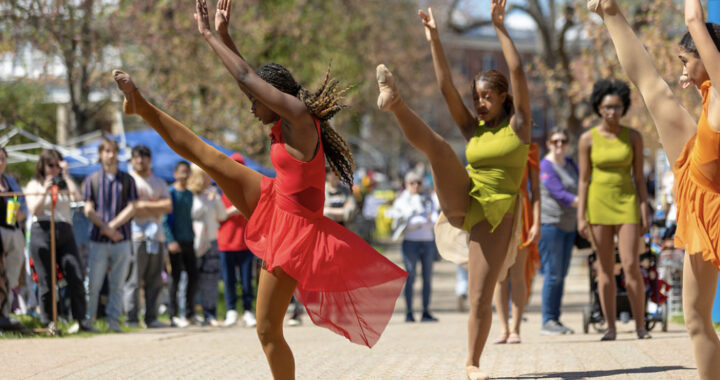“Humans are the real virus” is ableist and inaccurate
3 min read
Satellite pictures show the reduction in air pollution levels as humans stay indoors and quarantine. (severe-weather.eu)
ABIGAIL WEBER
Staff Writer
If you’ve been on social media in the past couple of weeks, you may have seen posts talking about how COVID-19 is good for the environment. Twitter is flooded with videos of swans and dolphins frolicking in the canals of Venice and photos of drunk elephants carousing in China’s corn wine gardens.
These have since proven to be hoaxes, and now you’re as likely to find a mocking post as a serious one, but there is a toxic quality to how social media responded to the stories.
In this storm of posts, “humans are the real virus,” became a viral refrain. A twitter page, claiming to be the East Midlands branch of climate action group Extinction Rebellion, posted “Corona is the cure. Humans are the disease!” Although Extinction Rebellion later claimed this was a fake account created by the far right, and the twitter page has since been taken down, the screencaps continue to circulate on Instagram and other social networking platforms.
There’s a pernicious subtext to this sentiment: those who die as a result of COVID-19 are merely sacrifices on the altar of a better environment. Those people will disproportionately be disabled.
The CDC reports that elderly people, people in long-term care facilities, people with respiratory conditions like asthma, people with severe heart conditions, and people who are immunocompromised by health conditions like HIV or treatments like chemotherapy are at a higher risk of developing severe illness from COVID-19.
Environmentalists considering disabled people acceptable losses in the fight for a better environment isn’t a new phenomenon. In 2018, when plastic straw bans swept over North America and Europe, disability advocates spoke out.
Arthritis support organization CreakyJoints noted that single-use plastic straws, unlike the suggested alternatives, are allergen-free and flexible, don’t carry the risk of choking or other injuries, don’t conduct heat from hot or cold liquids or dissolve while in use, and don’t carry germs–all of which are features that people with different disabilities may need to secure their safety and independence.
“Not as a lifestyle choice. Not as a luxury. I need straws that bend, ones that can handle all drinks, including medication, and all temperatures,” wrote disabled advocate Penny Pepper in an op-ed for the Guardian. “I need straws that aren’t too fat, that won’t cause me to choke or be difficult for me to keep in my mouth.”
Despite the efforts of Pepper and other advocates, plastic straws were replaced by hazardous alternatives in many cities and businesses.
Even if we all deemed a catastrophic loss of life acceptable, the positive environmental effects we’re experiencing now aren’t because the population is decreasing, but because non-essential travel and production, two big sources of pollution, have been mostly shut down.
The cleaner canals referenced in the viral tweet are clear because tourists aren’t stirring up sediment on boat rides. The European Space Agency noted that the amount of air pollution, particularly nitrous oxide, decreased significantly during Italy’s lockdown, while NASA reported similar decreases in quarantined areas of China. These pollution decreases can also be seen on holiday’s like the Lunar New Year—a period which partially overlapped with the quarantine this year—when all businesses are closed.
The environmental effects we’re seeing as a result of the novel coronavirus, greatly exaggerated on social media, are not because of the virus itself or the resulting deaths, but the shutdown of many industries and activities that produce pollution. Humans aren’t the virus; our systems are.
Among those vulnerable to COVID-19 and those who care for them, a new rallying cry has arisen in response to those who claim the virus isn’t a big deal because “only the vulnerable will be at risk”– “your ‘only’ is my everything.” When considering whether to reblog, retweet or add some viral post to your story, consider who the “onlies” who will suffer are.
I know lots of people are worried about climate change and environmental damage; I’m one of them. But fear doesn’t justify philosophies that demand or excuse the sacrifice of disabled people– especially philosophies that can turn into policies.











